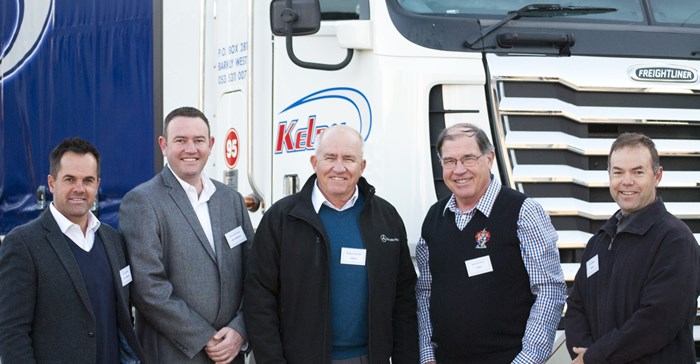
Holistic approach to wellness
The Fleet Owner Workplace Wellness Programme is an extension of the vehicle manufacturer’s own workplace wellness strategy – with its partner organisation, Corridor Empowerment Project (CEP) - to achieve profitable growth and contribute to the socio-economic success of the country.
The aim of the programme is to assist fleet owners in taking a holistic approach to employee health and wellness, based on a proven model.
"South Africa's trucking industry is at the economic heart of this country, pumping prosperity to our people. Healthy, skilled truck drivers are one of the key issues which we have chosen. As such, collaboration remains an important enabler for MBSA as we strive for the sustainability of the transport sector in South Africa, with employee wellbeing as a key contributor," says Kobus van Zyl, executive director: Daimler Trucks & Buses Southern Africa.
Through its corporate social responsibility programme, MBSA has supported the Trucking Wellness project since inception in 2009. This is an initiative of the National Bargaining Council of the Road Freight and Logistics Industry (NBCRFLI) which provides an education and basic healthcare service to truck drivers along the major freight routes in southern Africa. This includes dissemination of information, testing and treatment of HIV and AIDS and other lifestyle illnesses.
According to the organisation: “The once stable industry of some 70,000 drivers is now challenged by the impact of poor health and shortened life spans on its driving workforce. The effects of HIV and Aids can be felt in the constant search to replace lost drivers, either through high absenteeism or death.”
These drivers often also infect wives and girlfriends, creating a devastating ripple-effect through whole communities.
MBSA also provides its commercial vehicle customer base with dedicated driver training programmes that equip truckers with product knowledge to enhance safety and reduce cost of vehicle ownership.
The latest addition to the Workplace Wellness lineage, Kelrn Vervoer, a logistics solutions provider with a nationwide footprint, has successfully launched its programme.
Kenne de Kock, CEO of Kelrn, says: "We are aware of the value of good drivers as well as employees in good health. We care about the health and well-being of our personnel and are grateful to be a part of the Fleet Owner Workplace Wellness Programme with MBSA.”
The company is the fifth to join the programme. The others being Aspen Logistics, United Bulk, Bakers Transport and City Couriers. The participating fleet owners receive regular updated health information which can be shared with employees; biannual consultations on the refinement of their programmes; health skills training workshops; and support with Wellness/HIV Workplace Policy development.